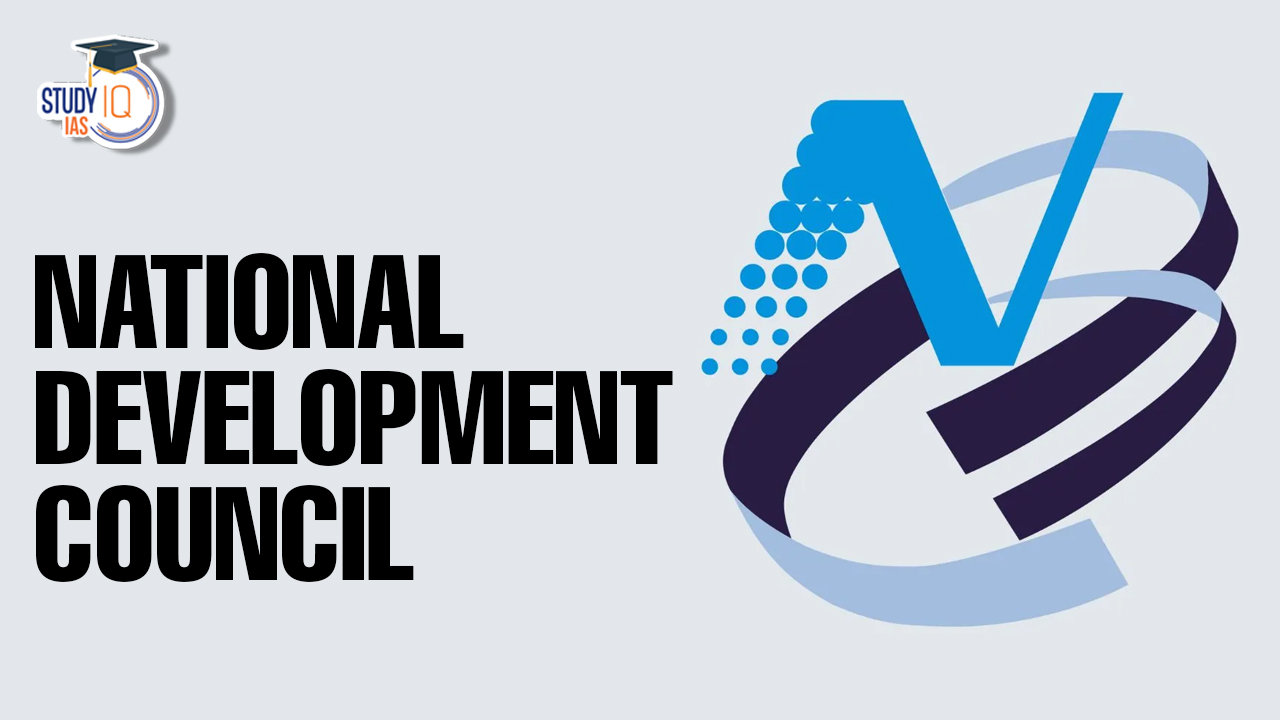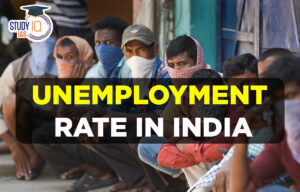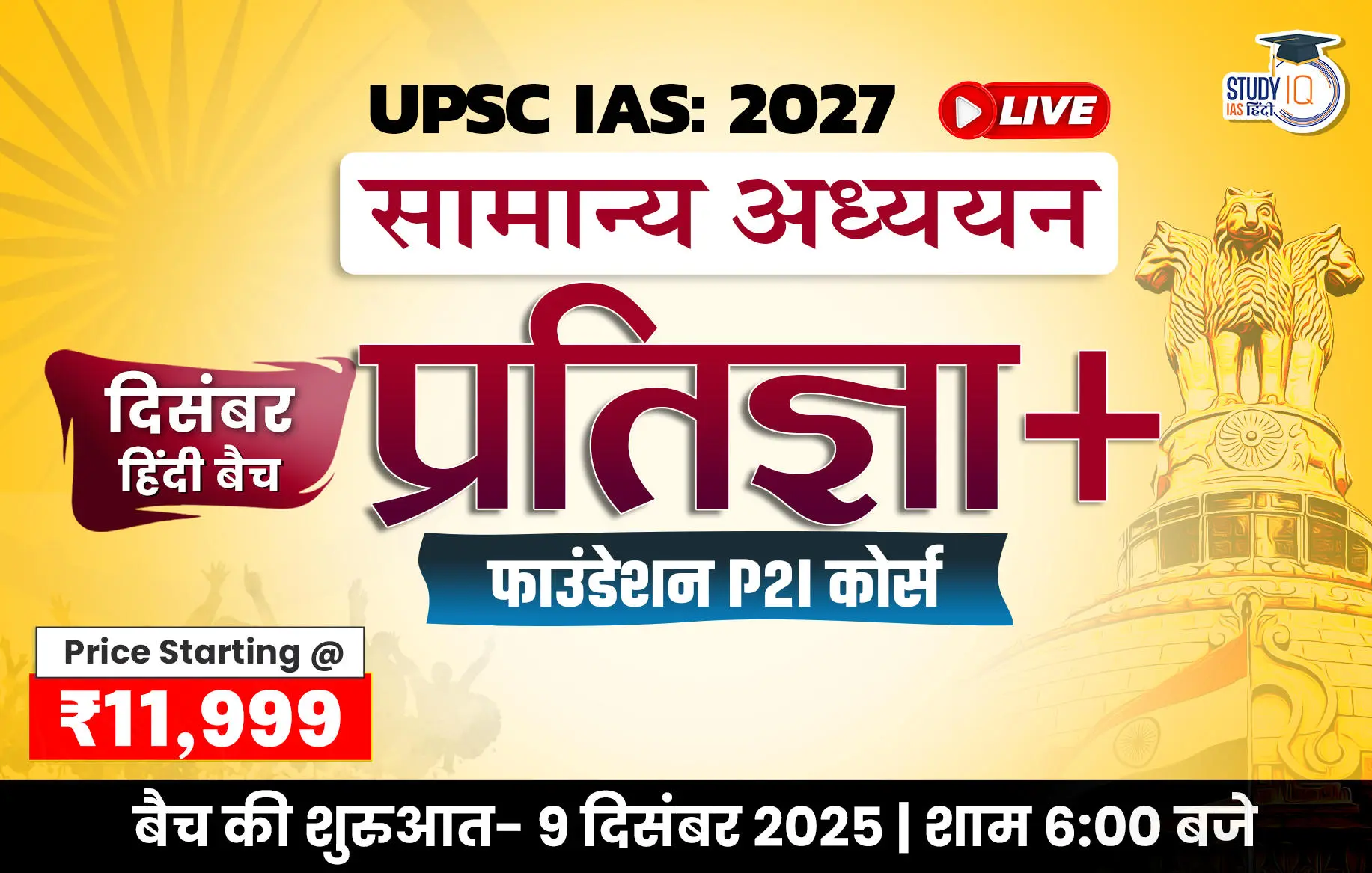Table of Contents
National Development Council
The National Development Council (NDC), also known as the Rashtriya Vikas Parishad, is the highest authority responsible for making decisions and engaging in discussions regarding development issues in India, with the Prime Minister as its presiding member.
Established on August 6, 1952, the primary objective of the National Development Council is to consolidate and mobilize the nation’s efforts and resources to support the implementation of the Plan. It aims to foster cohesive economic policies across various crucial sectors and ensure the equitable and swift development of all regions within the country.
Read about: Tax System in India
National Development Council Establishment
The National Development Council holds a significant position within India’s planning system, representing a federal approach to planning and ensuring a comprehensive national perspective. Throughout its history, the NDC has experienced various fluctuations in its fortunes, shaped by the political climate and the support extended by the central government, as well as the effectiveness of pressure exerted by state governments.
Despite the challenges faced over the past six decades, the NDC has consistently maintained its presence within the apex policy structure. The idea of establishing an advisory organization with representatives from provinces, princely states, and other stakeholders was initially proposed by the Planning Advisory Board, chaired by KC Neogi, in 1946. While this suggestion was not implemented before India’s independence, its rationale was widely acknowledged.
Recognizing the potential benefits of such a coordinating body, the Planning Commission of the Government of India emphasized the necessity of the National Development Council in the Draft First Five Year Plan. Given the vastness of the country and the autonomy enjoyed by states under the constitution, it was deemed crucial to establish a body that would enable periodic evaluations of planning and its various aspects by the Prime Minister and state Chief Ministers.
Consequently, the National Development Council was established in August 1952 through a proposal put forth by the Cabinet Secretariat of the Government of India.
Read about: Government of India Act of 1919
National Development Council Objectives
NDC, as an advisory body to the Planning Commission, has a set of key objectives, which are as follows:
- Enhancing and mobilizing the nation’s collective effort and resources in alignment with the Plan.
- Encouraging the adoption of unified economic policies across critical domains.
- Ensuring equitable and rapid development across all regions of the country.
- Serving as a platform for states to address their developmental concerns and challenges.
- Facilitating cooperation and collaboration among states in the implementation of development plans.
Read about: Gold Monetisation Scheme
National Development Council Functions and Powers
The National Development Council (NDC) has several functions and powers that can be summarized as follows:
Guideline Prescription
The NDC prescribes guidelines for the formulation of the National Plan, including the assessment of resources required for its implementation.
Plan Consideration
It reviews the National Plan as formulated by the NDC and takes into account important social and economic policy questions that affect national development.
Plan Review and Recommendation
The NDC periodically reviews the progress of the Plan and recommends necessary measures to achieve its aims and targets. This includes securing active participation and cooperation from the public, improving administrative efficiency, and ensuring development in less advanced regions and sections of society. It also emphasizes equitable sacrifice by all citizens to build up resources for national development.
Advisory Role
The NDC advises and makes recommendations to the Central and State Governments, serving as a high-power consultative body.
Problem Solving
The NDC discusses and finds solutions to important challenges facing the Indian economy, in addition to the framework of the Five Year Plans. It addresses various issues such as food security, the creation of the State Trading Corporation, and land reforms.
Coordination and Exchange
Acting as a bridge between the Union Government, the Planning Commission, and State Governments, the NDC coordinates policies, programs, and other national matters. It provides a platform for open and comprehensive discussions, facilitating the exchange of views.
Responsibility Sharing
The NDC enables the sharing of responsibility between States and the Union Government.
Composition
The NDC is headed by the Prime Minister and comprises all Union Cabinet ministers, Chief Ministers of states, Chief Ministers/Chief Executives of Union Territories, and members of the Planning Commission.
Consensus Decision-making
While the NDC generally does not pass formal resolutions, it maintains detailed records of discussions and draws a consensus based on those discussions. All decisions of the council are unanimous, although dissenting voices are taken into consideration.
Read about: Bad Bank
National Development Council Composition
The composition of the National Development Council (NDC) includes the following members:
- Indian Prime Minister: The NDC is chaired by the Prime Minister of India.
- Union Cabinet Ministers: All members of the Union Cabinet are part of the NDC.
- Chief Ministers of States or their Substitutes: The NDC includes the Chief Ministers of all States or their substitutes.
- Representatives of Union Territories: The NDC also includes representatives from the Union Territories.
- Members of NITI Aayog: The NDC comprises members of NITI Aayog, which was previously known as the Planning Commission.
The Secretary of the Planning Commission serves as the Secretary of the NDC, providing administrative support. The Planning Commission extends assistance in administrative matters.
The NDC has occasionally invited experts, including the Reserve Bank Governor, to address its meetings. Recognizing the challenge posed by the large membership of the Council, which at one point reached 50, a Standing Committee was established in November 1954. This Committee consists of only nine Chief Ministers and a few Union Ministers, enabling more focused discussions.
Furthermore, the NDC has the authority to appoint committees as needed to conduct detailed examinations of specific problems.
Read about: Banking Ombudsman
National Development Council UPSC
The topic of the National Development Council (NDC) is important for UPSC (Union Public Service Commission) because it is directly related to the UPSC Syllabus and encompasses key aspects of governance, planning, and policymaking in India. Aspirants preparing for UPSC examinations can learn from UPSC Online Coaching or take UPSC Mock Test to have a comprehensive understanding of such topics. Understanding the NDC ensures that UPSC aspirants are well-equipped to analyze and address issues pertaining to development and governance in India, which are frequently assessed in the UPSC exams.


 Purchasing Power Parity Index, How to Ca...
Purchasing Power Parity Index, How to Ca...
 Unemployment Rate in India, Current Rate...
Unemployment Rate in India, Current Rate...
 RBI Monetary Policy Committee: Repo Rate...
RBI Monetary Policy Committee: Repo Rate...

























